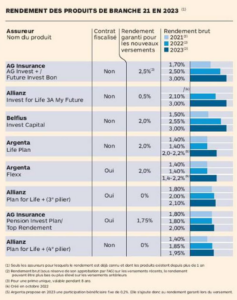Find out more about the insurance news of this month.
Market
M&A
Market
The Global Risks Report 2024: Insights into Worldwide Challenges

Released on January 10th by the World Economic Forum, the Global Risks Report 2024 highlights significant risks facing the world, including economic, environmental, geopolitical, societal, and technological challenges. Drawing from the Global Risk Perception Survey (GRPS), the report identifies extreme weather events, AI-generated misinformation, and political/societal polarization as the top global threats for 2024.
The Executive Opinion Survey (EOS) of 2023 reveals Belgium’s national risk perceptions, with economic recession topping the list of concerns. Despite the concerning global outlook, the report emphasizes opportunities for proactive measures at local, national, and international levels to mitigate risks and foster a safer world through investment, regulation, innovation, collective action, and cross-border collaboration.
Report here.
Insurance Trends 2024

Insurance companies focusing on customer-centricity, digital capabilities, and innovation will be best equipped to address the challenges of 2024, as per the “Insurance Top Trends 2024” report by Capgemini Research Institute.
The report outlines initiatives to enhance underwriting profitability, promote sustainability, and leverage AI for operational excellence and customer orientation. Key priorities include improving precision and efficiency through enhanced data and advanced analytics, with a focus on predictive analytics, IoT devices, and cloud technology.
For property and casualty insurers, the emphasis is on refining risk analysis, pricing techniques, and exploring innovations such as digital twins to address insurability concerns and adapt to evolving mobility needs. Life insurers are focusing on products and services for aging well, leveraging digital transformation to optimize processes and enhance customer relations. The report underscores trends in customer orientation, business management, and the emergence of the “intelligent industry” era, offering strategic insights and tactical use cases for profitable growth and future readiness.
Report here.
Financial Associations Urge Enhanced Coordination on SFDR Revision
Several European associations in the financial sector have sent a letter to the European Commission demanding better coordination in the review and publication of new rules regarding the Sustainable Finance Disclosure Regulation (SFDR). The European Commission is currently working on evaluating the draft Regulatory Technical Standards (RTS) that have been published by the European Supervisory Authorities (ESAs), as well as a broader and more fundamental review of the SFDR. In the aforementioned letter, the associations express their concern about the “lack of coordination” between these two review projects.
The Cost of Insurance Fraud
Insurance fraud is not a victimless crime. While insurance companies initially bear the weight, ultimately, the cost is passed on to all policyholders in the form of higher premiums. According to Insurance Europe, insurance fraud accounts for 5 to 10% of total payouts in most European markets for non-life insurance such as auto, fire, and household insurance.
In Belgium alone, this equates to €400 to €800 million annually, translating to nearly €200 extra per average household in insurance premiums lining the pockets of fraudsters. While it’s impossible to prevent all insurance fraud, insurers operate on the assumption of good faith from their clients. Assuralia estimates that verified fraud totals between €120 to €150 million annually, thanks to anti-fraud efforts, preventing payouts to fraudsters.
Implementation of Mobility Budget
In 2023, Brussels employers led in integrating mobility budgets into their salary policies, with 3.5% adoption compared to 2.6% in 2022. Flemish and Walloon employers showed less enthusiasm, at 1% and 0.8% respectively.
The mobility budget encourages eco-friendly commuting by replacing company cars with funds for electric mobility, public transport, or housing expenses. Despite being a small fraction, adoption doubled from 0.2% to 0.4%, with workers aged 25 to 35 leading in opting out of company cars for mobility budgets, particularly in urban areas.
M&A
Monument Re Expands European Presence with Acquisition of Closed Book Portfolio
Monument Re has recently finalized the acquisition of a closed book portfolio from Integrale Luxembourg S.A. through its Luxembourg subsidiary, Monument Assurance Luxembourg S.A. (MAL). The acquired portfolio consists of a long-term life insurance business serving markets in Luxembourg, the Netherlands, and France, with policy terms remaining unchanged for existing policyholders.
This move aligns with MAL’s strategy of expanding its presence in the European insurance market by integrating legacy portfolios from Luxembourg, Italy, and Spain. As a fully licensed life insurance company in Luxembourg, MAL operates under regulatory oversight and has branches in Spain, Italy, and Germany. This acquisition follows the appointment of Carlo Elsinghorst as the new CEO of Monument Re, succeeding Manfred Maske, who played a crucial role in the company’s growth since 2017.
Sources:
Assuropolis, Conditions météorologiques extrêmes, IA et polarisation principaux risques au niveau mondial
Assuropolis, Principales tendances 2024 dans le secteur de l’assurance selon Capgemini
Assuropolis, Assuralia : l’actualité de l’assurance dans le monde en ce mois de février
Assuropolis, La fraude à l’assurance est un problème sociétal
Assuropolis, Le budget mobilité repris dans la politique salariale d’un employeur bruxellois sur trente
Insurance business, Monument Re announces latest acquisition





